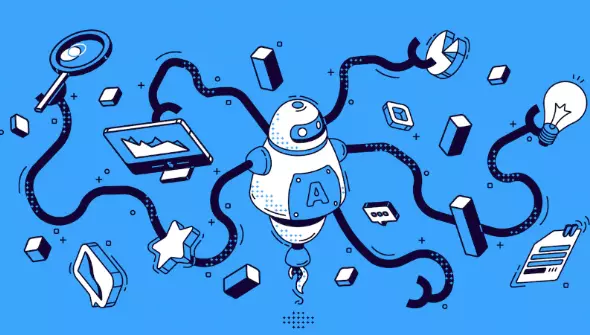
Multitasking means performing multiple tasks and/or processes simultaneously over a period of time. Multitasking, which is widely used in computer systems and the most popular feature of mobile phones in recent years, also has an important place in human life.
For humans, multitasking is not as easy and functional as it is with computers and can pose a danger to human life. While talking on the phone while driving is one of the common multitasking tasks people do, it's actually considered a very dangerous behavior.
In this article, we will examine the concept of multitasking and try to understand what effects it has on people.
-
Multitasking May Not Be As Good As You Think
In general, multitasking seems like a time-saving method. However, when trying to fit different tasks into the same period, it becomes difficult for the brain to focus; the margin of error increases, more time is spent, contrary to popular belief, and the efficiency decreases.
Examples include talking on the phone and trying to drink coffee while driving, or a mother talking on the phone while preparing a meal, and also trying to talk to her child.
-
It Reduces Your Productivity
Dealing with multiple tasks at the same time results in the opposite of your main purpose. You may be using multitasking to save time, but this approach is clearly wasting your time.
Because when you focus your attention on more than one thing, you naturally slow down. You don't know what to do, and because you're distracted, you waste time trying to refocus. Long story short, when you try to speed up, on the contrary, you slow down.
-
It Negatively Affects Your Brain
Because the brain is not fully focused when multitasking, tasks take longer overall to complete, and the probability of making mistakes increases. For this reason, multitasking is not an ideal way of working for people.
Just as you are not made up of ones and zeros like machines, your working logic is different from machines.
-
Multitasking Is A Way Of Working That The Human Brain Is Not Naturally Accustomed To
The brain can focus on one task only. For this reason, when it takes on more than one task at the same time, it forces itself and can be harmed. Moreover, as a result of the research conducted by the University of England, it has been observed that this damage can even lead to permanent damage.
Because when the brain starts a second task, it completely forgets the first task and focuses on the second one. The act of jumping from topic to topic also causes the brain to release the hormone dopamine.
Because processes such as sending messages, looking at the phone, and taking care of another job while driving cause the brain's self-reward system to activate. This makes multitasking a bad habit that the brain will want all the time.
-
Multitasking Also Affects You Psychologically
Multitasking can make you feel more stressed than usual. Think about the impact a single to-do has had on you and multiply the impact by the number of jobs you try to do at the same time. It is inevitable that a folded stress will arise.
Focusing on one task at a time and completing it gives you a sense of accomplishment and relaxation. Doing more than one job at the same time and leaving all of them unfinished reduces your self-confidence and causes you to be unhappy.
-
It Can Even Lower Your IQ
According to the research of the University of London, the IQ level of those who continue multitasking can drop to the same level as addicted people. This proves how much of a problem it can be to tire the brain with complex tasks.
-
What Can We Do About It
- Keep in mind that multitasking is something to be proud of.
- Try different working techniques and put things in order instead of complicating them
- List the things you need to do in order of importance
- Isolate your work area from distracting noise and, if necessary, warn people around you.
- You can easily manage and sort your tasks with the applications you can install on your phone.
- Do not hesitate to seek psychological help if necessary for your loss of concentration, inattention, and focus problems.
